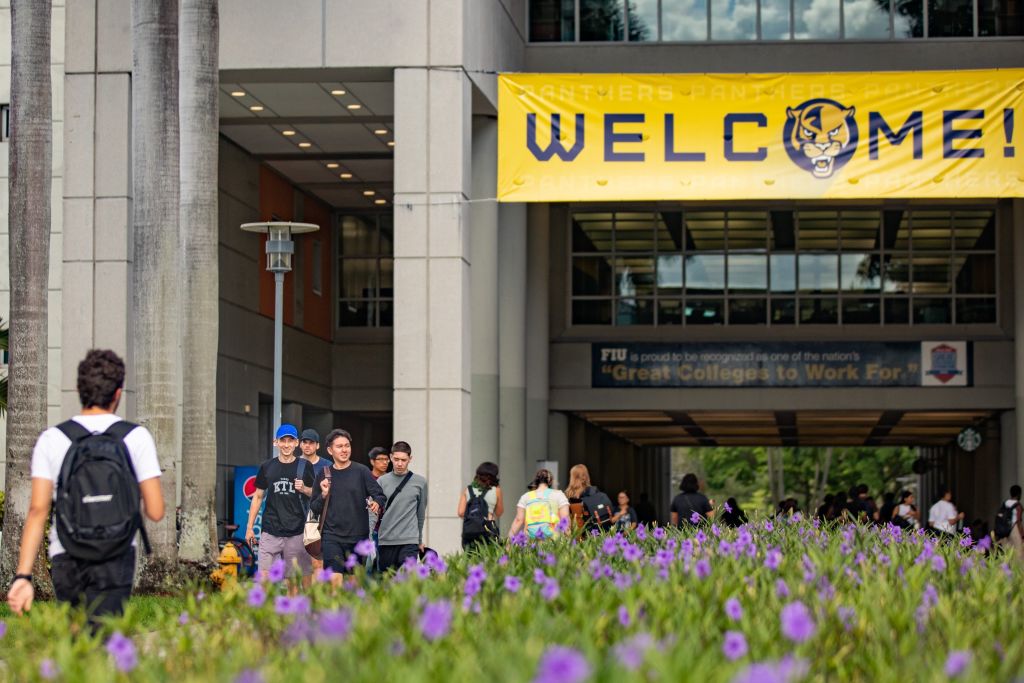
This article is part of The D.C. Brief, TIME’s politics newsletter. Sign up here to get stories like this sent to your inbox.
For years, consultants paid to help colleges draw more applicants urged premium amenities, posh student centers, and professional-grade athletic complexes. But, in the current environment, an unlikely selling point has quietly emerged: access to abortion rights.
In a new tranche of research released Thursday from Gallup and the Lumina Foundation, almost three-quarters of college students told pollsters that laws governing reproductive health factored into their decision of whether to stay enrolled in their current campus or leave. While Democrats have the strongest interest in abortion rights, a clear 62% of Republicans also said they play a factor in picking a university. Among all college students, the support for states that have greater access to abortion is by an overwhelming 4-to-1 margin, including two-thirds of Republicans who said they prefer states with less restrictive abortion laws. It’s also a pronounced winner among women (86%) and men (74%) alike.
The survey of about 6,000 current college students and 6,000 college-age adults is among the first hard pieces of evidence of the second-order effects of last year’s Dobbs decision that reversed a half-century of national legal access to abortion rights. Dobbs sent the question of abortion back to state legislatures, and 13 states have all-but-outlawed the medical procedure. Five other states have bans starting as soon as six weeks of gestation, and the federal courts are considering competing cases dealing with abortion medication.
The results may not come as a total surprise for anyone involved in the higher ed world, but for those scrambling to maintain student rolls in a red state, it’s another piece of bad news on top of what was already keeping policy wonks up at night: the Enrollment Cliff.
Higher ed officials across the country were already bracing for the next few years at the very real prospect that application rates will dip, and hard. That’s because the young professionals of the late aughts and early ‘10s didn’t have children at the same rates as their slightly older counterparts. Birth rates fell and stayed low as young families remained skittish about being about to provide in a shaky economy. COVID, too, had a baby bust. As a result, the numbers of applicants—and then matriculators—are forecast to shrink for the next two decades. While the high-demand flagships and marquee schools will make out just fine, mid- and lower-tier universities could see themselves hollowed out, as the economics of their offerings simply don’t match the moment.
Statistically, the trend seems to be cutting particularly hard against red states. In states with Republican governors right now, enrollment this fall declined on average, while states with Democratic governors crept up ever so slightly, according to my reading of the numbers. There were, of course, outliers: Wyoming was up 8%, Maryland was off by almost 5%. But on average, the states that can least afford to be losing ground with potential college students were those where Republicans now lead, and those are the states that, writ large, are moving to constrict abortion rights. In other words, their culture war agenda is poised to ding their higher-ed policies as a bank-shot casualty.
So as many state leaders are treating abortion rights as something confined to health clinics, they are missing the broader ripples here. Much the same way corporations and sports voted with their feet when states adopted policies that were counter to their values, college applicants are looking closely at the cultural climate of places where they could spend four—or likely more—years studying and exploring their lives as young adults. red states were already having a tough time attracting talent among students and professors alike, and veering to the right on abortion is only going to make retaining their rankings and prestige more difficult.
Make sense of what matters in Washington. Sign up for the D.C. Brief newsletter.
More Must-Reads From TIME
- The 100 Most Influential People of 2024
- Coco Gauff Is Playing for Herself Now
- Scenes From Pro-Palestinian Encampments Across U.S. Universities
- 6 Compliments That Land Every Time
- If You're Dating Right Now , You're Brave: Column
- The AI That Could Heal a Divided Internet
- Fallout Is a Brilliant Model for the Future of Video Game Adaptations
- Want Weekly Recs on What to Watch, Read, and More? Sign Up for Worth Your Time
Write to Philip Elliott at philip.elliott@time.com